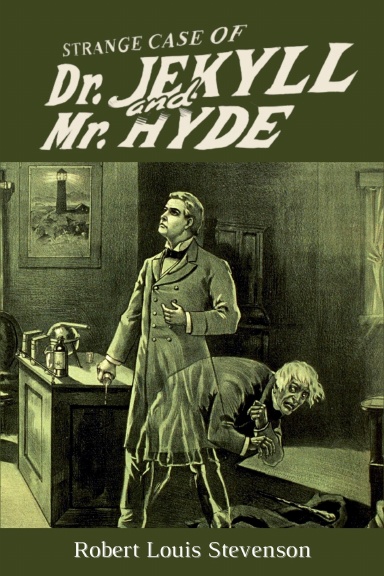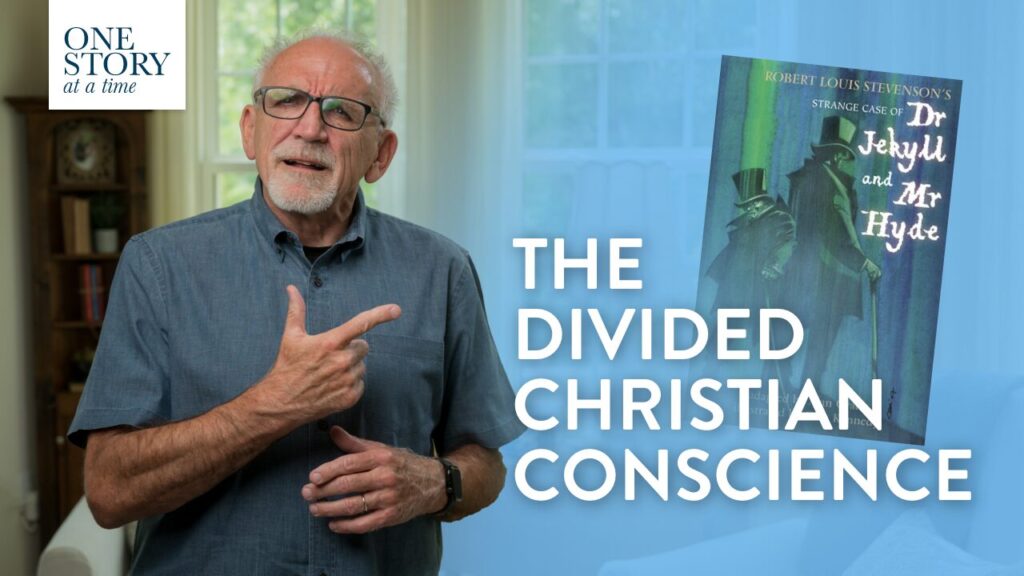Dr. Jekyll, Mr. Hyde, and the Divided Christian Conscience
Picture it: a foggy night in London.
Rain softly patters against the cobblestone streets, dimly lit by flickering gas lanterns. In a grand home in the upscale part of the city lives Dr. Henry Jekyll—a man of intellect, respected and admired for his generosity. But behind the polished façade lies a darker desire: Jekyll longs to separate the good and evil within him. He believes that if he can isolate the darkness, he can indulge it without guilt and still be seen as a good man.

Driven by this idea, he creates a potion that transforms him completely into someone else—Edward Hyde. Hyde is everything Jekyll is not: violent, impulsive, and cruel.
This is, of course, Robert Louis Stevenson’s book, The Strange Case of Dr. Jekyll and Mr. Hyde. At first, Jekyll believes he is in control. But Hyde grows stronger with each transformation, committing unspeakable acts—even murder. Eventually, Jekyll realizes he hasn’t created a new being—he’s simply released the evil that was already there, hidden beneath the surface.
One moment in particular reveals the depth of this tragedy. Sitting alone on a bench in Regent’s Park, Jekyll reflects on all the good he has done. He compares himself to others and feels proud of his moral efforts. He says:
“I smiled, comparing myself with other men, comparing my active goodwill with the lazy cruelty of their neglect… At the very moment of that vain-glorious thought, a qualm came over me, a horrid nausea and the most deadly shuddering… I looked down… I was once more Edward Hyde.”
The transformation had happened WITHOUT the potion. This was the turning point. By the time Jekyll realizes the truth, it’s too late. Unable to stop the monster he has become, he ends his own life. In his final letter, he confesses that the evil he thought he could control had always lived within him.
But this story isn’t just a piece of classic literature—it holds a mirror to the divided heart of humanity.
We can be like Mr. Hyde in our sin, yes—but we can also be like him in our self-righteousness. Like Jekyll, we may convince ourselves we are better than others because of our good deeds, while ignoring the pride and darkness lurking beneath.
This story, though fictional, leaves us with a haunting question:
What if the greatest danger isn’t around us—but within us? Consider the warning of Romans 6.
Therefore do not let sin reign in your mortal body, so that you obey its desires. 13 And do not offer any parts of it to sin as weapons for unrighteousness. But as those who are alive from the dead, offer yourselves to God, and all the parts of yourselves to God as weapons for righteousness. 14 For sin will not rule over you, because you are not under the law but under grace. — Romans 6:12-14 (CSB)
Now let’s step beyond the pages of fiction and take a hard look at the world—and the hearts—we live with today.
